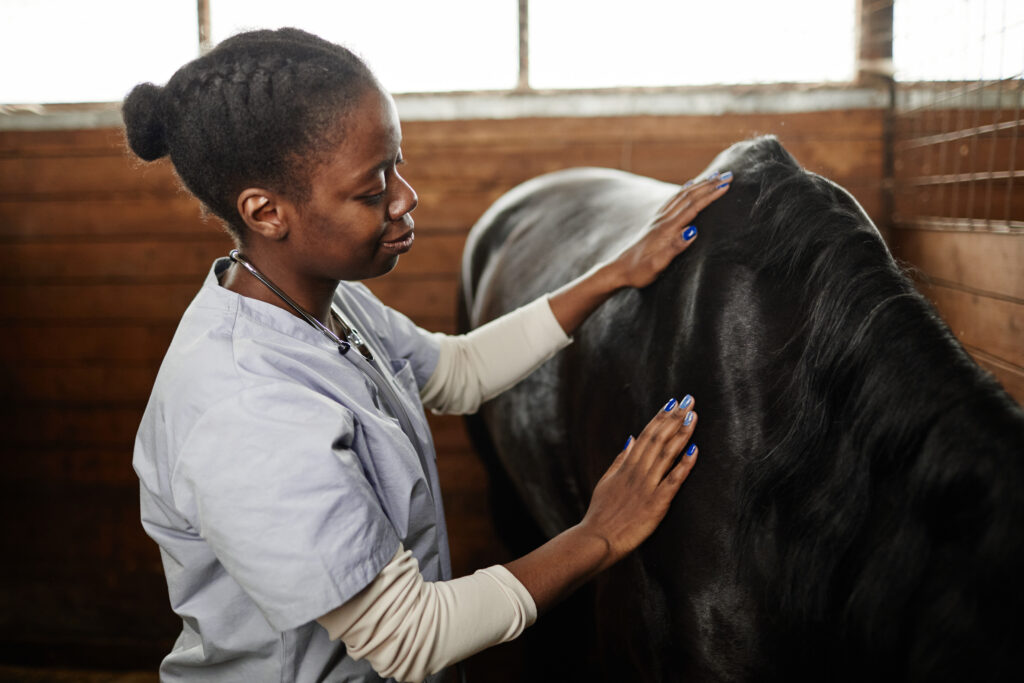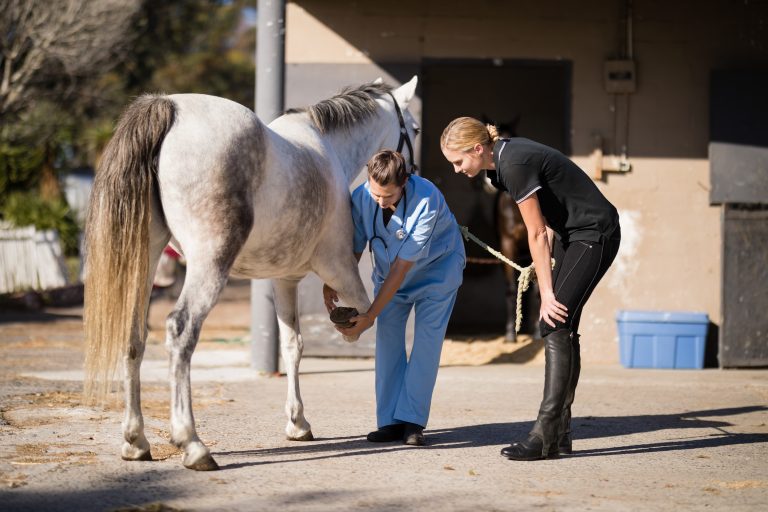
A decade ago, the veterinary medical field gained national attention for being ranked as the least diverse profession based on federal demographic data. Although the veterinary profession as a whole is almost 90% white, the equine veterinary field is 97% white, according to the 2024 AVMA AAEP Report on the Economic State of the Equine Veterinary Profession. In recognition of this, the 2023 AAEP Convention included an afternoon session and a table topic on diversity, equity, and inclusion (DEI) in veterinary practice. With the current difficulty in attracting and retaining equine veterinarians, intentional steps to expand the diversity of doctors in the career could open new possibilities for the future.
Tiers of Diversity
In 2022, Latonia Craig, Ed.D., was named the American Veterinary Medical Association’s first Chief Diversity, Equity, and Inclusion Officer. Craig was formerly an educator and Assistant Dean for Inclusive Excellence at Purdue University’s College of Veterinary Medicine. In her presentation at the 2023 AAEP Convention, she spoke of the intersections of diversity. The first tier of diversity includes age, physical abilities, ethnicity, gender, race, and sexual orientation, she explained. After this, diversity branches into communication style, economic status, family/work life, marital status, functional specialty, military experience, job level, country of birth, religious beliefs, thinking styles, geographic location, parental status, and education, among others. Clearly, human beings are incredibly diverse.
DEI comes from the universal language of belonging, Craig continued. Words that support and illustrate belonging include present, invited, welcomed, known, accepted, involved, supported, heard, befriended, and needed. Expanding this sense of belonging to other people can make a significant impact.
How to Foster DEI in Veterinary Practice
To foster intentional DEI in veterinary practice, Craig recommended practices use the new AVMA program Journey for Teams. This program includes eight modules: Power of Diversity, Unconscious Bias, Psychological Safety, Microaggressions, Brave Space, The Art of Retention, The Art of Recruitment, and Client Communications. Increased understanding through education can help practices change unconscious behaviors that make others feel unwelcome.
Troy Holder, DVM, DACVS-LA, presented on his experiences during the DEI session. He said the biggest challenge he faced as a minority surgeon was with code switching. Code switching describes how a member of an underrepresented group consciously or unconsciously adjusts their language, syntax, grammatical structure, behavior, and appearance to fit into the dominant culture. This can be damaging to members of a minority group because if the dominant culture is different than their authentic self, they might feel like they are unacceptable, unprofessional, and undesirable.
“I always felt like I was an actor on a stage,” Holder said. This caused him to frequently feel exhausted and depressed. He described the microaggressions and macroaggressions he experienced. Microaggressions are common verbal, behavioral, or environmental slights, whether intentional or unintentional, that communicate hostile, derogatory, or negative attitudes toward stigmatized or culturally marginalized groups. Macroaggressions, on the other hand, are overt and conscious. Becoming aware of the reality a minority person often experiences can change attitudes and behaviors, which could make equine practice a more welcoming career.
The Ed Brown Society
In a recorded video presentation, Clark Williams spoke about the Ed Brown Society, an organization he co-founded that intentionally builds a pipeline for people of color in the equine industry. Ed Brown was a very successful mid-19th-century jockey and trainer who began his life as a slave in Kentucky. He was inducted into the National Museum of Racing Hall of Fame in 1984. Williams described the barriers students of color face in joining the equine industry, including lack of representation, minimal access and exposure to the equine world, discrimination and bias, limited networking connections, noninclusive equine venues, cultural differences that create discomfort, educational gaps, stereotypes about horse ownership, lack of role models, and financial limitations. He then outlined the steps the Ed Brown Society takes to create a talent pipeline into the equine field. These steps include recruitment, mentoring, coaching, orientation to the industry, personal development, experiential learning, and placement in industry positions. This admirable and well-considered work is making a real difference in bringing talented people into the equine veterinary industry.
Future Plans for the AAEP’s DEI Committee
In 2024, the AAEP’s DEI Committee plans to encourage practices to undertake the AVMA’s Journey for Teams and to follow up with practices to share their takeaways from the program. In addition, the committee will work with the Ed Brown Society and the AVMA’s DEI team to increase opportunities for minority veterinary students. By encouraging greater diversity in our profession, we will create a deeper pool of talent and ideas.









